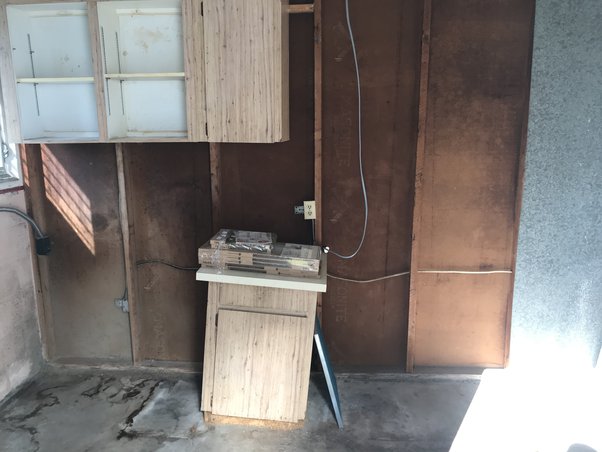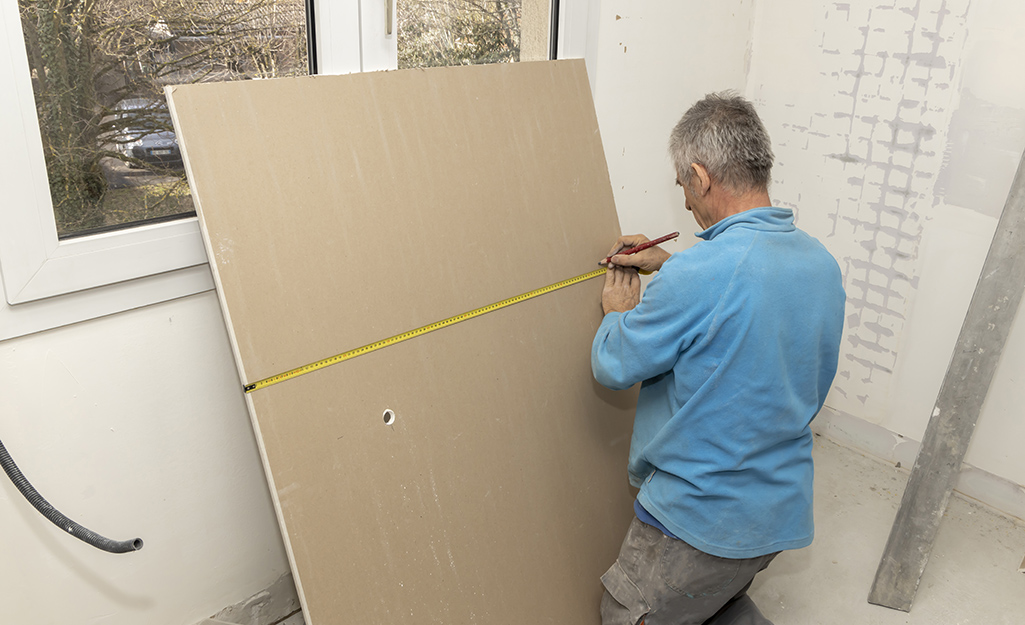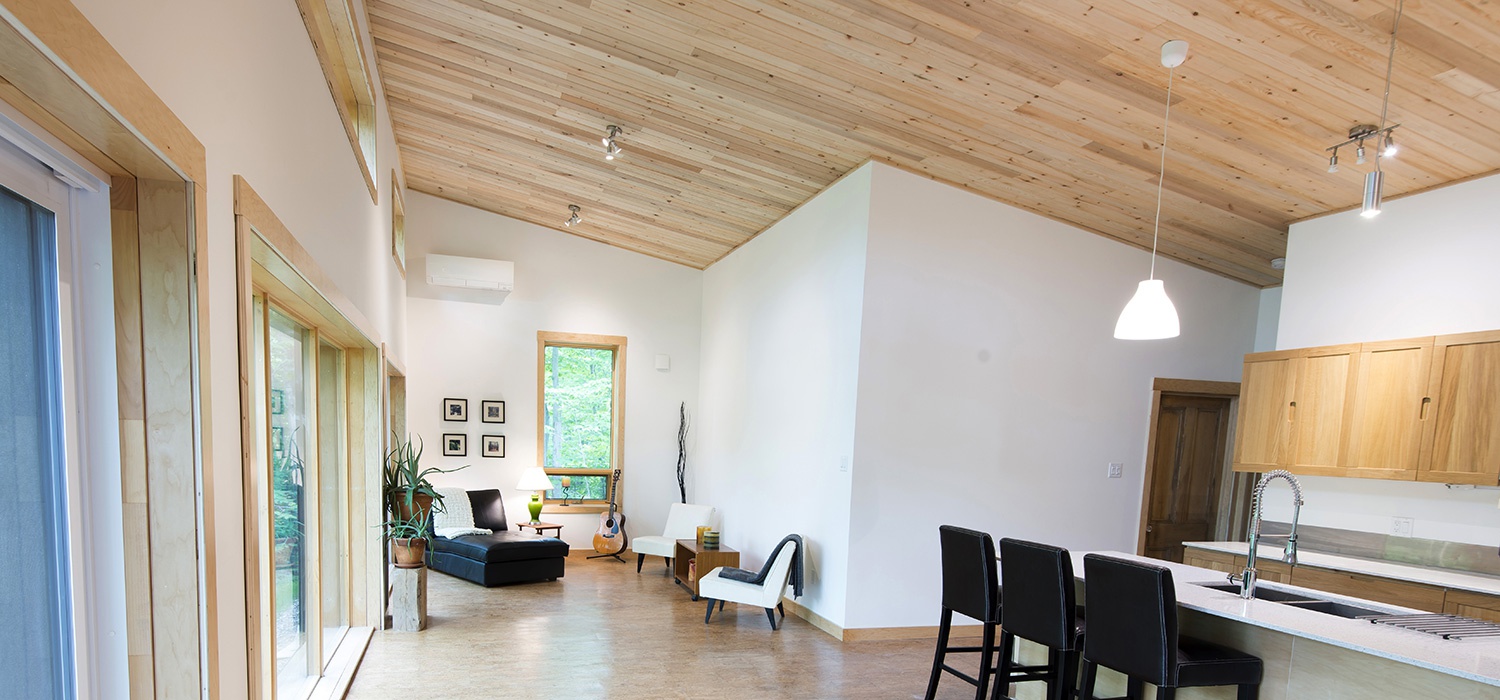
Drywall is a widely used material in construction. Drywall is lightweight and durable but can become damaged over time. Installers who are professionals will ensure that your property is of the highest quality.
Drywall is used to replace plaster or wooden. Drywall is most commonly used for interior walls. This type of wall construction employs a core that is gypsum-based to create a solid, insulated layer. Unfortunately, drywall is susceptible to damage over time, making it difficult to repair.
Joint compound is a good option to fill in any cracks or holes in your drywall. Once the mud has dried, you can then paint the wall with a new coat of color. You can give your drywall a more attractive finish by applying a second coat to blend the taped joints.
You may need to get a professional to repair a large hole in your wall. An experienced handyman/contractor will complete the job quickly and efficiently for a reasonable price.

When doing this project on your own, make sure you read the instructions carefully. Also, you should wear safety goggles and gloves. Clear the area first before you can start. You can then measure and mark. You can also use a square guide to mark damaged areas if the wall has been broken in multiple places. You can use a sharp razor blade to remove the hole.
A drywall smoothing device is needed to fix minor scrapes and abrasions. A utility knife can also be used to check that the drywall is level with the surrounding joints. After you have finished, you can use a drywall knife to apply the last thin layer.
You should be aware of the possibility that your older home may contain asbestos or lead paint. Before you begin drywall installation, be sure to check that it is free from asbestos and lead paint. Using the right tools is critical to ensuring a safe and successful project.
Dents are another common problem. A spackle or sander might be used to fix a ding on your drywall. Spackle is more cost-effective than using a sander to remove dents.
Drywall can be damaged by moisture, abrasions, or improper nailing. These problems can cause drywall to weaken and let in pests and moisture. Though most drywall damages are small, it is still a good idea check for potential damage. For smaller holes, a patch is usually enough. Larger holes may require extensive repairs.

Depending on how extensive your damage is, you have the option of either hiring a handyman or doing the drywall repair and installation yourself. A reliable handyman should charge between $60 and $90 an hr.
For more serious drywall repairs, it is better to hire professionals. Professionals can do a range of services including taping, sanding, or securing walls. You can save money by finding the right professionals.
FAQ
Are permits necessary to renovate my property?
Permits are required before you can start any home improvement project. In most cases, you will need both a plumbing and building permit. You might also require a zoning permission depending on which type of construction is being undertaken.
What should I do before renovating a home?
Fixing up a home starts with cleaning out all the clutter from inside and outside. You will need to clean out all moldy areas and repair any leaky pipes. Finally, you'll need to repaint the interior. Finally, you need to clean off the exterior surfaces and apply fresh paint.
Should I hire an architect or builder?
If you are planning to renovate your own home, it may be easier to just hire someone else to do the work for you. However, if you are planning to buy a new home, then hiring an architect or builder will help you make sure that you get exactly what you want.
Is it possible to live in a house that is being renovated?
Yes, I can live inside a house while I renovate it.
Are you able to live in your house while the renovations are ongoing? The duration of the construction works will affect the answer. If the renovation takes less than two months, then you can live in your house while it is being built. You can't live there if your renovation project takes more than two months.
It is important that you do not live in your home during major construction. A lot of heavy machinery is used at the jobsite, which can lead to noise pollution and dust.
This is especially true if you live in a multi-story house. If this happens, the sound and vibration caused by the construction workers can cause significant damage to your home and contents.
You'll also need to cope with the inconvenience of living in temporary housing while your house is being renovated. This means that your home won't provide all the amenities you need.
As an example, your washer and dryer will be out of commission while they are being repaired. It will be difficult to bear the smell of paint fumes as well the sounds that workers make.
All these things can lead to anxiety and stress in your family. You should plan ahead to avoid feeling overwhelmed by this situation.
To avoid costly mistakes, do your homework before you make any decisions about renovating your home.
Also, it is a good idea to get professional help from a reputable contractor in order for everything to go smoothly.
Statistics
- Most lenders will lend you up to 75% or 80% of the appraised value of your home, but some will go higher. (kiplinger.com)
- ‘The potential added value of a loft conversion, which could create an extra bedroom and ensuite, could be as much as 20 per cent and 15 per cent for a garage conversion.' (realhomes.com)
- It is advisable, however, to have a contingency of 10–20 per cent to allow for the unexpected expenses that can arise when renovating older homes. (realhomes.com)
- They'll usually lend up to 90% of your home's "as-completed" value, but no more than $424,100 in most locales or $636,150 in high-cost areas. (kiplinger.com)
- Rather, allot 10% to 15% for a contingency fund to pay for unexpected construction issues. (kiplinger.com)
External Links
How To
How much should I spend on restoring my house?
The cost to renovate your home will vary depending on how many rooms are being renovated, which type of renovations you do, where you reside, and whether or not you are hiring professionals. Depending on the scope and size of the project, the average renovation cost is between $10,000 and $50,000.
You'll probably get less than the market value of your home if you don’t include the cost of repairs, upgrades and other improvements. If you don't put enough effort into your home before it sells, you could even lose money. On the other side, if your home is in a good condition, you can get more money if you put in the effort.
These factors will help you choose which projects to start first.
-
Your budget. If you have a limited budget, start small. For example, you can tackle one room at a time, such as painting walls or replacing flooring. You can also hire a contractor that specializes in kitchen remodels to make major changes without spending too much money.
-
Priorities. What are your priorities? Do you want to improve your home's overall condition or fix specific issues? You should not limit your efforts to one problem. Even minor problems can quickly add up. For example, if your roof leaks after it rains you may have to replace it sooner than expected.
-
Your timeline. You might prioritize projects that will not affect your home's resale price if you are considering buying another property. If you are looking to purchase a new home next year, for example, you might not want to replace your bathroom fixtures or install hardwood floors right away. To make these upgrades, it might be a good idea to wait until you leave your home.
-
Your skills. You might not have the skills to complete a project. If you are unable to carpenter custom cabinets, hiring a cabinet maker may be an option.